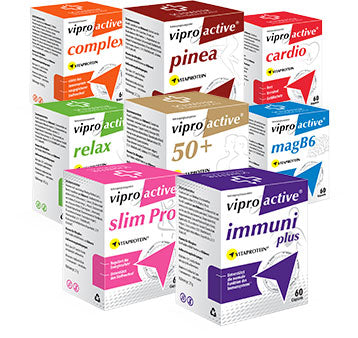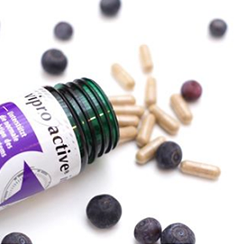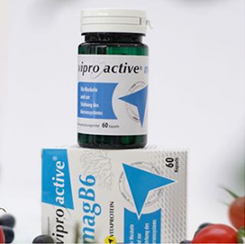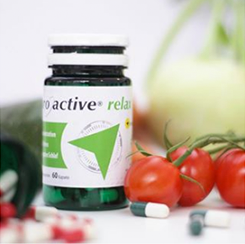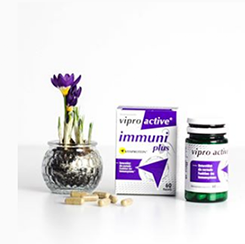The Role of Vitamins B1, B6, B12 in Health
What is the effect of vitamins B1, B6, B12?
You often hear that vitamins B1, B6, B12 are good for the body. However, what may not be known is the numerous health effects of these minerals. Which foods contain a lot of these vitamins? Let Schaeffer Nutraceuticals give you some insights.
Vitamins B1, B2, B3, B5, B6, B7, B9 and B12, also known as vitamin B complex, belong to the B group of vitamins - water-soluble vitamins - which are essential for the body. The B - vitamins play an important role for the body and influence the metabolism and the development of the nervous system as well as hair and skin growth. In addition, they are a necessary "conductor" in food metabolism, which helps the body absorb substances and regulate chemical reactions of enzymes or proteins.
The vitamin B complex contributes significantly to our health: prevention and reduction of the risk of stroke; strengthening the body's defenses; Assisting in the production of hormones; Cardiovascular disease risk reduction, anemia prevention; Improving skin and hair function and many other benefits.
In order to properly use B vitamins, it should be noted that each type of these vitamins has different effects on the body.
B1 - Prevention of beriberi: People who consume alcohol, beer, stimulants frequently or are malnourished have a very high probability of getting beriberi. Vitamin B1 has the ability to prevent edema. Vitamin B1 also supports the functioning of the nervous system. A lack of this vitamin can lead to tiredness, lack of concentration or depression. Vitamin B1 also has the ability to stimulate the digestive system, which plays an important role in carbohydrate metabolism, muscle activity, and nerve and heart growth.
B6 reduces the risk of heart disease: This vitamin helps to improve protein and fat metabolism, supports the activities of the immune system and nourishes the nervous system. The lack of vitamin B6 leads to the risk of unpleasant symptoms, fatigue, insomnia or even mental confusion, dry chapped lips, acne, hair loss, blurred vision, red eyes, difficult wounds or slow healing. People who are alcoholics, malnourished, have Heart failure, or cirrhosis of the liver are often at high risk of vitamin B6 deficiency.
B12 – prevent anemia: Vitamin B12 keeps blood and nerve cells healthy. Vitamin B12 deficiency can lead to depression, fatigue, neurological disorders and, if prolonged, permanent damage to the brain and central nervous system. In addition, vitamin B12 deficiency also increases the risk of pernicious anemia. In particular, people who eat a vegetarian diet should take special care to find an alternative source of vitamin B12, e.g. in the form of a dietary supplement, since plants and plant-based foods do not contain any vitamin B12.
Vitamin B2 strengthens the immune system: This vitamin helps to keep the skin and blood cells as well as the intestinal mucosa in a healthy condition. In addition, B2 can prevent migraines, acne and cataracts.
Vitamin B3 provides energy and helps convert food into energy. A lack of B3 can cause symptoms of dementia, diarrhea and adverse effects on physical and mental health.
Vitamin B7, also known as vitamin H, is involved in the production of hormones. It is important for the digestion of proteins and carbohydrates and is necessary for the formation of fatty acids and glucose. In vitamin B7 there is biotin, which is useful for hair and nail growth.
Foods Rich in Vitamins B1, B6 and B12
After answering the question of what vitamins B1, B6, B12 do, do you want to know what foods contain many of these vitamins? Vitamins B1, B6, and B12 are easy to find in everyday foods, such as:
Vitamin B1: Oats, powdered milk, oranges, nuts, eggs, whole grains, meat, nuts, peas, beans.
Vitamin B6: Bananas, beans, carrots, cheese, chicken, lentils, brown rice, tuna, sunflower seeds, whole wheat flour, shrimp, spinach and salmon, raspberries, red peppers, peas, broccoli.
Vitamin B12: Natural sources of vitamin B12 are mussels, oysters, mussels, animal liver, fish such as mackerel, tuna, seafood, beef and meat products, nutritional yeast and grains.
Use Dietary Supplements As A Second Source Of Vitamin B.
As mentioned above, B vitamins are vital to our normal health performance. For some people who are on a special diet or just want to provide their body with enough B vitamins, taking dietary supplements is an optimal solution.
At Schaeffer Nutraceuticals we have developed two products that contain Vitamins B1, B6 and B12:
Viproactive 50+: for better health of people over 50 years. These special vitamins are said to support the normal function of the heart, nervous system and blood circulation in older age groups and reduce the risk of heart failure.
Viproactive Complex: contains 24 types of vitamins and minerals. They provide your body with sufficient nutrients every day and improve your health performance.
We recommend taking our supplements twice a day within 3 months to get a significant result of your desired health improvement.
- Choosing a selection results in a full page refresh.
- Press the space key then arrow keys to make a selection.


